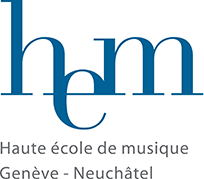Orchestration
L’un des aspects les plus complexes et mystérieux de la composition musicale, encore relativement peu abordé systématiquement dans le champ scientifique, concerne l’écriture du timbre, en particulier par les techniques d’orchestration. Le projet se fonde sur une confrontation de l’état de l’art en musicologie, en psychologie de la perception et en informatique musicale pour la création de nouveaux outils permettant d’aborder les problématiques liées à l’orchestration, sa perception et sa pédagogie.
L’objectif est de développer des modèles généralisables qui facilitent l’apprentissage et la pratique de l’orchestration, assistés par les nouvelles technologies. L’enjeu à long terme est de constituer un traité d’orchestration interactif intégrant les connaissances sur les pratiques de l’orchestration, la perception des effets orchestraux, ainsi que des outils numériques pour aider à résoudre des problèmes d’orchestration, y compris pour l’écriture de parties électroniques d’oeuvres mixtes. Le projet s’appuie à cet effet sur un important volet d’annotations de corpus de musique classique selon un ensemble de catégories pertinentes, destinées à alimenter à la fois des expériences perceptives, des supports pédagogiques et à constituer des données d’entraînement pour des algorithmes d’apprentissage automatique.
Le rôle de l’Ircam dans le projet porte sur les applications de l’informatique musicale et de l’intelligence artificielle aux outils d’aide à l’orchestration, sur la base du logiciel Orchids et de nouvelles recherches faisant appel à des techniques d’apprentissage profond.









